
Hong Kong
Directory


Akin

Appleby

Arendt & Medernach

Ashurst

Baker McKenzie

Bird & Bird

Campbells

Carey Olsen Hong Kong LLP
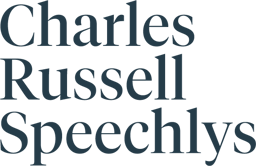
Charles Russell Speechlys LLP

Charltons

China Patent Agent (H.K.) Ltd.

Cleary Gottlieb Steen & Hamilton

Clifford Chance

CMS

Commerce & Finance Law Offices

Conyers
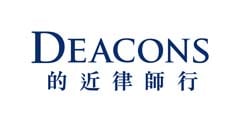
Deacons

Denis Chang’s Chambers

Dentons Hong Kong

Des Voeux Chambers

DLA Piper

FenXun Partners

Gallant

Goodwin

GPS Legal LLP

Haldanes

Hill Dickinson LLP

Hogan Lovells

Howse Williams

Hugill & Ip

Ince & Co
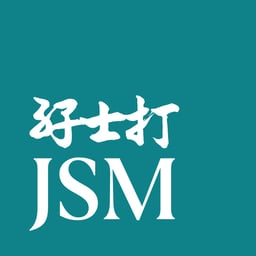
Johnson Stokes & Master

Jones Day

JunHe LLP

K&L Gates

Kirkland & Ellis International LLP

Latham & Watkins LLP

Linklaters

Mayer Brown

Merits & Tree Law Offices

Milbank

Morgan, Lewis & Bockius

Morrison Foerster

Mourant

Nixon Peabody CWL

Norton Rose Fulbright

Ogier

Oldham, Li & Nie

Orrick, Herrington & Sutcliffe

Osborne Clarke

Pantheon Chambers

Parkside Chambers

Paul, Weiss, Rifkind, Wharton & Garrison LLP

Plowman Chambers

Prince's Chambers

Proskauer Rose LLP

Quinn Emanuel Urquhart & Sullivan, LLP

Rede Chambers

Ropes & Gray LLP

RPC

Shirley Choi & Co.

Sidley Austin LLP

Simmons & Simmons

Simpson Thacher & Bartlett Hong Kong

Stephenson Harwood

Steptoe LLP

Suite 2703 Chambers

Tanner De Witt

Tian Yuan Law Firm

Timothy Loh LLP

Tsui & Co

Tung & Co.
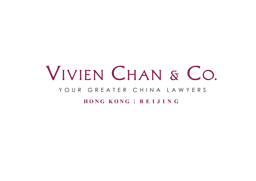
Vivien Chan & Co

Walkers

Watson Farley & Williams

Weil, Gotshal & Manges LLP

White & Case

Wilkinson & Grist
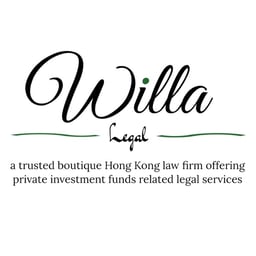
Willa Legal

Withers

YYC Legal LLP
News & Developments
ViewHong Kong’s virtual asset regulation: Licensing for dealing and custody
On 27 June 2025, the Hong Kong government unveiled two transformative consultation papers proposing comprehensive licensing regimes for virtual asset (VA) dealers and custodians, marking the next phase in the city’s evolution toward becoming a globally competitive yet responsibly regulated digital asset hub. These proposals signal Hong Kong’s commitment to the principle of “same activity, same risks, same regulation”, ensuring that VA businesses face the same rigorous oversight as their traditional financial counterparts.
The strategic rationale
To appreciate why Hong Kong is tightening its VA regulatory framework, it is essential to understand the broader context. VAs operate in a unique space where traditional financial safeguards can appear ambiguous. Previous regulatory initiatives, including the 2022 policy statement on VA development and the 2023 licensing regime for VA trading platforms, laid the groundwork, but gaps remained. The new proposals fill those gaps by addressing two critical functions: the buying and selling of VAs and the safekeeping of the VAs once purchased.
For people entering the VA space, this regulatory tightening offers reassurance. It means that when they deposit cryptocurrency with a licensed custodian or trade tokens through a regulated dealer, there are now measurable standards, capital requirements and compliance obligations are in place to protect their interests.
The VA dealing regime
The proposed VA dealing regime targets a broad spectrum of market participants, including cryptocurrency exchanges, over-the-counter brokers, block traders and digital asset advisers. Importantly, it captures all dealing services, whether conducted through brick-and-mortar outlets, digital-only platforms or hybrid models. The one exception is peer-to-peer trading between private individuals, which remains unregulated.
Eligibility and governance requirements. The regulatory framework demands substantial corporate discipline. Applicants must be locally incorporated or registered in Hong Kong, ensuring accountability within the jurisdiction. The “fit-and-proper” test applies not just to the corporation itself, but to substantial shareholders and individuals performing VA dealing functions. This multi-layered governance approach recognises that regulatory compliance fails when responsibility diffuses among parties who lack proper incentives or qualifications.
A novel requirement mandates at least two responsible officers for anti-money laundering and counter-terrorist financing (AML/CFT) compliance. This dual-officer model prevents a single individual from cutting corners or succumbing to conflicting pressures.
Capital and compliance obligations. The regime imposes financial thresholds: HKD5 million in minimum paid-up capital, plus liquid capital requirements ranging up to HKD3 million depending on the business model and scale, along with excess liquid capital equivalent to at least 12 months of actual operating expenses. These figures create a financial cushion to protect clients in case of failures.
AML/CFT obligations align with Hong Kong’s existing Anti-Money Laundering and Counter-Terrorist Financing Ordinance. Customer due diligence and meticulous record-keeping become non-negotiable. For large dealers, regulatory knowledge qualifications are mandatory, meaning compliance personnel must demonstrate competency through formal assessment.
Token admission and investor safeguards. Not all tokens qualify for trading. The regime establishes token admission criteria mirroring the requirements for VA trading platforms, restricting retail investors to high-liquidity tokens and HKMA-licensed stablecoins. This gatekeeping function protects investors from highly speculative or illiquid assets. Enhanced due diligence on client suitability, risk assessment and asset segregation further shields the public from predatory practices.
The VA custodian regime
If dealers represent the marketplace, custodians represent the vault.
Defining the custodian landscape. The regime targets entities safeguarding VAs or managing private keys and authentication credentials on clients’ behalf. This expansive definition captures traditional banks diversifying into digital assets, fund managers accepting crypto allocations, and specialist VA custodians. Notably, certain entities are exempt from licensing: technical service providers offering generic security solutions, bank vaults storing encrypted key backups and HKMA-licensed stablecoin issuers maintaining only their own assets.
Operational and technical requirements. Private key storage must employ advanced cryptographic techniques, multi-party computation, key sharding, or equivalent measures to prevent single points of failure. Client assets must be segregated, preventing custodians from co-mingling or misusing customer holdings. Cybersecurity measures are raised to institutional standards, with explicit requirements to prevent breaches.
Financial thresholds and accountability. Capital requirements for custodians exceed those for dealers: HKD10 million minimum capital, plus up to HKD3 million in required liquid capital. This distinction reflects custodians’ heightened responsibility as they hold people’s wealth. Non-bank custodians must publish audited accounts, ensuring transparency and enabling regulators to continuously monitor financial health.
Enforcement and the cost of non-compliance
Both regimes carry serious sanctions. Operating without a licence risks a fine of up to HKD5 million and seven years’ imprisonment. Fraudulent or deceptive conduct in VA transactions escalates to a HKD10 million fine and ten years’ imprisonment. These penalties deliberately match or exceed sanctions for traditional financial fraud, establishing a clear principle of enforcement equivalence for VA offences.
Looking forward
The consultation period represents a critical opportunity for industry participants, technology providers, and compliance professionals to engage constructively with regulators, raising practical concerns while demonstrating commitment to responsible growth. Well-calibrated feedback can refine provisions that may inadvertently impede innovation or create unintended compliance burdens.
For market participants, preparation is vital. Organisations currently operating without licences must chart a path toward compliance. Those seeking new VA business lines must integrate licensing requirements into their planning. Legal advisers should familiarise themselves with the detailed criteria, as licensing applications will demand meticulous documentation and governance structuring.
These proposed regimes, if thoughtfully refined through consultation, position Hong Kong as a jurisdiction where investors feel secure, and innovators can flourish responsibly.
Sam Wu is a Partner and Beverly Fu is an Associate at YYC Legal LLP
[email protected]
[email protected]
YYC Legal LLP - January 7 2026
Press Releases
Polly Chu Advises Offshore Conglomerate in Landmark HK$2.2 Billion Deep Water Bay Luxury Property Acquisition
Hugill & Ip is proud to announce its pivotal role in a landmark real estate transaction, representing an offshore company part of a prominent Mainland Chinese conglomerate in the acquisition of two ultra-luxury houses at 6 Deep Water Bay Road for a combined HK$2.2 billion (over US$282 million). This significant deal marks one of the highest records achieved in recent years for luxury residential properties in Hong Kong.
Polly Chu, Head of Real Estate at Hugill & Ip, led the team advising the buyer, navigating the complex legal and regulatory landscape inherent in such a substantial cross-border investment. The seller, Swire Properties, is represented by JSM.
The transaction, scheduled for completion in the first quarter of 2026, implies an impressive price of approximately HK$147,010 per square foot. The exclusive development comprises two exquisite three-storey homes situated on a single lot, with saleable areas of approximately 9,600 sq ft and 5,300 sq ft respectively.
Each residence is a masterpiece of design and craftsmanship, offering four to five en-suite bedrooms, private swimming pools, meticulously landscaped gardens, and expansive outdoor terraces. The properties are further distinguished by their wrap-around glass facades, providing unparalleled panoramic views of Hong Kong’s stunning southern coastline. Perched on the lush hillside above Deep Water Bay, the location is only a stone’s throw away from some of the city’s most exclusive private clubs, top international schools, and major business hubs, commanding uninterrupted views of Hong Kong’s South Coast.
"We are immensely proud to advise our client, an offshore entity of a prominent mainland Chinese conglomerate, on this significant acquisition," said Polly Chu.
"This transaction not only underscores the enduring appeal and resilience of Hong Kong's ultra-luxury residential market but also highlights Hugill & Ip's deep expertise in handling complex, high-value cross-border real estate investments. Our team successfully navigated the intricate legal requirements to ensure a seamless process for our client, reinforcing our position as a trusted advisor in the region's most sophisticated property deals."
The swift sale of these exceptional properties demonstrates the market's appreciation for premium products and reflects the robust demand for world-class residential properties in Hong Kong's most sought-after locations. Hugill & Ip’s real estate practice is working on a series of high-end sales which further exemplify the city's continued vibrancy in the luxury residential sector.
Hugill & Ip - December 29 2025
LGBTQ+ Rights & Marriage Equality: Hong Kong Legal Community & IAFL Townhall
IAFL Calls for Equal Legal Protection for All Families in Hong Kong – International family law organization welcomes judicial progress while urging comprehensive legislative reform for same-sex couples and civil partnerships
The International Academy of Family Lawyers (IAFL) has issued a statement reaffirming its commitment to legal protection without discrimination for families and children across international borders, with particular focus on Hong Kong's evolving legal landscape for same-sex relationships and civil unions.
The statement was released following a gathering held at the offices of Hugill & Ip in Six Pacific Place on 3 December 2025, where leading Hong Kong family law practitioners and IAFL fellows convened to discuss critical issues affecting diverse family structures in Hong Kong. The event provided a platform for dialogue on the legal challenges facing same-sex couples and families in civil unions, bringing together local and international expertise to examine pathways toward comprehensive legislative reform.
"The legal landscape is evolving, and we must ensure that all families receive equal protection under the law," said Caroline McNally, partner at Hugill & Ip and IAFL fellow. "The recognition of same-sex relationships and civil unions isn't just a matter of rights — it's about ensuring children and families have the legal certainty and protections they deserve, regardless of how their families are structured."
Azan Marwah, barrister at Pantheon Chambers and IAFL fellow, emphasized the international dimensions of these issues: "We regularly see individuals and couples caught between different legal systems, where their relationships are recognized in one jurisdiction but not another. This creates real hardship for families, particularly when dealing with inheritance, custody, or immigration matters. Comprehensive legislative reform in Hong Kong would align us with international human rights standards and provide crucial protections for families with cross-border connections."
The prestigious international organization, comprising over 1,000 practicing lawyers from 128 jurisdictions worldwide, applauded recent Hong Kong judicial decisions affirming the fundamental human rights of same-sex couples while calling for more comprehensive legislative action to protect all family structures equally under the law.
Judicial progress and legislative opportunities
The IAFL welcomed the Hong Kong Judiciary's landmark decisions recognizing same-sex partnerships. These developments represent significant progress in aligning Hong Kong's legal framework with international human rights standards protecting family diversity.
However, the organization emphasized that incremental reforms, while valuable, may not provide the comprehensive protections that families require, encouraging the Hong Kong Government to consider the introduction of marriage equality for same-sex couples, as the best mechanism to protect families. Full marriage equality ought to be positioned as the gold standard for legal protection.
Marriage equality would provide same-sex couples with the complete suite of legal rights, responsibilities, and protections currently available only to heterosexual married couples, including inheritance rights, medical decision-making authority, taxation benefits, immigration status, and parental rights. Piecemeal legislative solutions, while beneficial, often create complex legal frameworks that may leave gaps in protection or create administrative burdens for families navigating multiple registration or recognition schemes.
The overlooked issue: civil unions
Beyond same-sex relationships, the discussion drew attention to another significant gap in Hong Kong's family law framework: the recognition of heterosexual civil unions celebrated abroad. This issue affects a growing number of families but receives considerably less public attention than same-sex marriage debates.
Civil unions, also known as civil partnerships in many jurisdictions, represent legally recognized relationships that provide similar rights and responsibilities to marriage but under a different legal designation. At least 42 countries across all continents currently offer civil union options, reflecting diverse cultural, religious, and legal traditions regarding relationship recognition.
Many couples choose civil unions for personal, philosophical, or practical reasons. Some prefer the secular nature of civil unions over traditional marriage. Others enter civil unions because they were the only legal option available in their jurisdiction at the time. Regardless of motivation, these families deserve equal legal protection.
When civil union partners relocate to Hong Kong, they face legal uncertainty regarding their relationship status. Without recognition, they may encounter difficulties in areas such as dependent visa applications, medical decision-making, inheritance, joint property ownership, and parental rights. Should the relationship break down, the absence of a dissolution framework creates additional complications, potentially leaving parties without access to financial remedies or clear custody arrangements for children.
International standards
The position reflects evolving international human rights jurisprudence recognizing family diversity. International human rights instruments, including those Hong Kong has committed to upholding, increasingly recognize that the right to family life extends beyond traditional heterosexual marriage to encompass various family formations deserving legal protection.
The organization's Sexual Orientation and Gender Identity Committee has worked closely with the IAFL Executive Committee in raising awareness among members, providing education on evolving legal standards, and developing this public statement of support for LGBTQ+ rights. This collaboration demonstrates the organization's institutional commitment to equality principles across its global membership.
Championing LGBTQ+ rights
Hugill & Ip and Pantheon Chambers have been at the forefront of advocating for LGBTQ+ rights and equal marriage in Hong Kong since their respective founding days. The practice has consistently handled groundbreaking matters related to same-sex couples and their families, providing legal representation in landmark cases that have shaped Hong Kong's evolving jurisprudence on relationship recognition and family rights.
The commitment extends beyond individual client representation to active involvement in policy advocacy, public education, and supporting legislative reform efforts. Through participation in professional organizations like the IAFL and engagement with stakeholders across civil society, they have worked to advance the conversation around marriage equality and comprehensive legal protections for diverse family structures.
"From our very first days, we recognized that family law must serve all families equally," said Alfred Ip, founding partner of Hugill & Ip. "Our commitment to LGBTQ+ clients and advocacy for same-sex marriage rights reflects our fundamental belief that the law should protect families based on love, commitment, and mutual support — not arbitrary distinctions about who can form a family. We will continue championing full equality until every family in Hong Kong receives the legal recognition and protection they deserve."
Call for comprehensive legislative reform
The IAFL's statement invites the local legislative body to introduce comprehensive legislation addressing both same-sex relationships and civil unions on terms of equality with marriage. Such legislation would provide clear recognition frameworks, establish rights and responsibilities for partners and children, and create dissolution mechanisms ensuring fair outcomes when relationships end.
Comprehensive reform would position Hong Kong as a regional leader in family law, attracting international talent, supporting diverse families already residing in the territory, and demonstrating commitment to international human rights obligations. Many leading financial centres have begun addressing these issues, recognizing that inclusive family law frameworks support economic competitiveness by accommodating internationally mobile professionals and their families.
The IAFL, as an organization of the world's most experienced and skilled family law specialists, brings authoritative expertise to these discussions. Its members regularly navigate cross-border family law issues, witnessing firsthand the practical consequences when legal systems fail to recognize diverse family structures. Their collective experience underscores that comprehensive, equality-based legislative frameworks best serve children's interests, protect vulnerable parties, and provide legal certainty for families.
As Hong Kong continues its legal evolution on family recognition, the IAFL's statement provides international perspective and professional expertise supporting comprehensive reform protecting all families equally under the law.
Hugill & Ip - December 8 2025
Capital Markets
New open market requirements and IPO offering mechanisms in Hong Kong
The Hong Kong Stock Exchange (“HKEx”) concluded a major consultation and implemented, effective from 4 August 2025 (the “implementation date”), a series of reforms aimed at optimising IPO price discovery and open market requirements. HKEx is also seeking public views on public float proposals.
Major changes
The listing rule changes apply to all existing listed companies and new applicants with prospectuses published on or after 4 August 2025.
Public float. Each Hong Kong listed company and new listing applicant must maintain an “open market” for their listed securities. Thus, HKEx requires a minimum percentage of listed securities to be held by the public (public float), i.e. not held by the listed company’s core connected persons (e.g. holders of 10% of more shareholding, directors and their close associates) and not financed by the listed group or any core connected person. Before the implementation date, the public float is 25% of the total number of issued shares, or 15% to 25% if the expected market capitalisation is over HKD10 billion at listing.
From the implementation date onwards:
For companies with a single class of shares or PRC companies without other listed shares, the public float requirement is 25% if the market value of all listed securities is HKD6 billion or less. If the market value is more than HKD6 billion up to HKD30 billion, the public float must be the higher of (i) the percentage that would result in the market value of listed securities in public hands to be HKD1.5 billion at time of listing, and (ii) 15%. For market value of above HKD30 billion, the public float must be the higher of (i) the percentage that would result in the market value of listed securities in public hands to be HKD4.5 billion at time of listing, and (ii) 10%. HKEx may permit a lower public float, on a case-by-case basis, if the market value significantly exceeds HKD45 billion.
For PRC companies with other listed shares (e.g. A shares listed on a mainland stock exchange), H shares in public float must be 10% or is of at least HKD3 billion in market value at listing.
Free float. To foster the open market requirement, HKEx introduces a new concept of “free float” effective from the implementation date. It refers to securities available for trading upon listing, and normally means the securities held by the public and not subject to disposal restrictions.
For listed companies with a single class of shares or PRC companies with no other listed shares, the listed shares in free float must (i) be at least 10% of the total issued shares listed on HKEx with market value at listing of at least HKD50 million for Main Board and HKD15 million for GEM, or (ii) have a market value of not less than HKD600 million at listing.
For PRC companies with other listed shares, the H shares in free float must (i) be at least 5% of the total issued shares in the class to which H shares belong (usually meaning H shares and A shares together) with market value at listing of at least HKD50 million for Main Board and HKD15 million for GEM, or (ii) have a market value of not less than HKD600 million at listing.
IPO offering mechanism. At least 40% of the offered shares must be allocated to investors in the placing tranche (other than cornerstone investors). In respect of the public subscription tranche, the IPO applicant may select:
an initial 5% of offered shares allocated to the public subscription tranche (if demand in that tranche reaches 15 times but is less than 50 times, the allocation increases to 15%; if demand reaches 50 times but is less than 100 times, it rises to 25%; and if demand hits 100 times or more, the allocation must increase to 35%); or
a minimum initial allocation of 10% and a maximum of 60% of the offered shares to the public subscription tranche with no clawback mechanism.
Further consultation
HKEx is seeking public views on ongoing public float issues.
HKEx proposes that all listed companies be subject to a more flexible ongoing public float requirement. Apart from the above-mentioned public float percentages that took effect on the implementation date, the public float requirement can also be satisfied if shares in public hands (i) have a market value of at least HKD1 billion and (ii) represent at least 10% of the total number of issued shares of the same class as HK listed shares (or, for a PRC company with other listed shares, 5% of the PRC company’s total number of issued shares in the class to which H shares belong). All listed issuers will have to confirm compliance with their ongoing public float thresholds in their monthly returns and annual reports.
A listed company which fails to meet the public float requirement will not be required to suspend trading of its shares, but must make announcements on such breach, its plan to restore public float and status of such restoration plan.
A situation will be classified as a “significant public float shortfall” if (i) the public float falls below 15% or, where a lower initial public float threshold is permitted at listing, below 50% of that threshold and (ii) the market value of public float shares is less than HKD500 million or represents under 5% of the issuer’s total issued shares in the class of the listed shares. In such cases, the HKEX will impose a special stock marker on the listed securities, and the issuer will be required to make additional disclosures.
If the company with a significant public float shortfall fails to restore its public float within 18 months for Main Board (or 12 months for GEM), it will be delisted.
Rossana Chu is a partner at YYC Legal
[email protected]
YYC Legal LLP - December 5 2025